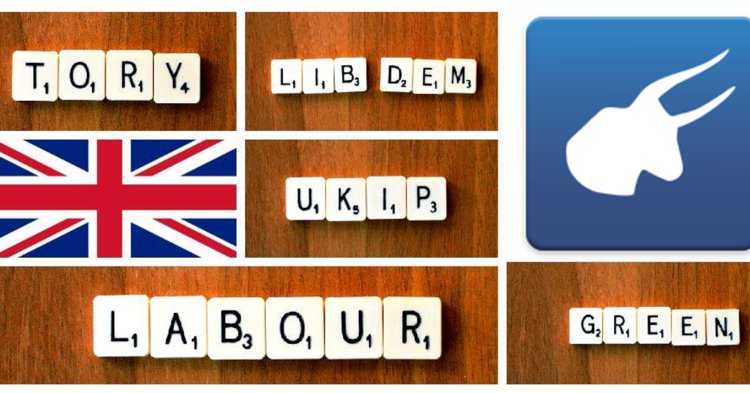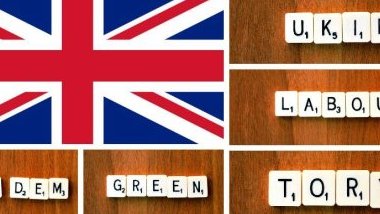The pending EU membership referendum
Since the last elections in 2010, the government was formed by Conservatives (Tories) and Liberal Democrats (LibDems) with David Cameron as Prime Minister. In the last five years Britain has faced the financial crisis, the Scottish referendum and rising discontent with Immigration policies. Additionally the EU-critical UK Independence Party under leader Nigel Farage has gained more and more popularity among the population. UKIP campaigns against bureaucratisation through Europe and the political influence of Brussels and as a consequence demands British exit, Brexit. To counteract UKIP’s rise, David Cameron made a promise in 2013 to hold a referendum on EU membership should he be voted into office again.
“Tories” and “Labour” in a head-to-head race in recent polls
In recent opinion polls reveal a close race between the two major parties (Conservatives and Labour). However, particularly relevant in terms of building a coalition will be the results of the LbDems and those of the Green Party. While the LibDems have lost significantly over the past year, the Green Party is quickly but steadily growing. Even though a UKIP coalition seems very unlikely, as even the Tories have excluded said possibility, a strong Eurosceptic opposition in parliament will not go unnoticed, especially considering Cameron saw the need to promise a referendum while UKIP had only two MPs.
Brexit decided though this election?
JEF is committed to solidarity in the European Union and to Britain remaining a part of it. Apart from the reasons brought forward by the JEF Cross Border Network, also the prognoses of the aftermath of a Brexit predict a negative impact on the British economy. Ultimately these arguments have little influence on the election result. This can only be decided by the voters themselves.
Low voter turnout among young people
Considering the significance of this election, the political apathy among British youth is particularly worrying. Although this is their chance to influence their future and the future of their nation a low voter turnout is expected. In 2010 less than 50% of 18-25 year-old British went to the polls on election day. To provide a comparison, in the german parliamentary election in 2013 over 60% of the same age group chose to cast their vote. While the British voter registration system, that requires individual agency and effort may be partly to blame, it is really the widespread disillusionment with politics that keeps young Brits from the polling station. The results of this trend are that the political direction is exclusively decided by generations of 35+.Campaigns like “Swing the vote” aim to engage with young potential voters by putting emphases on issues relevant to them, for example unemployment, tuitions fees and online data protection.
[Youth participation in politics matters}
Regardless of one’s personal opinion on the UK-EU relationship, a higher turnout among young people should be in the interest of every European. In order to actively shape UK domestic and foreign policy, the British youth needs to make their voices heard. It should not only be campaigned for “EU loves UK” but also “We love youth participation” to encourage the generation to vote who could decide upon Europe’s future and who will have to live with the consequences.




Follow the comments: |
|
